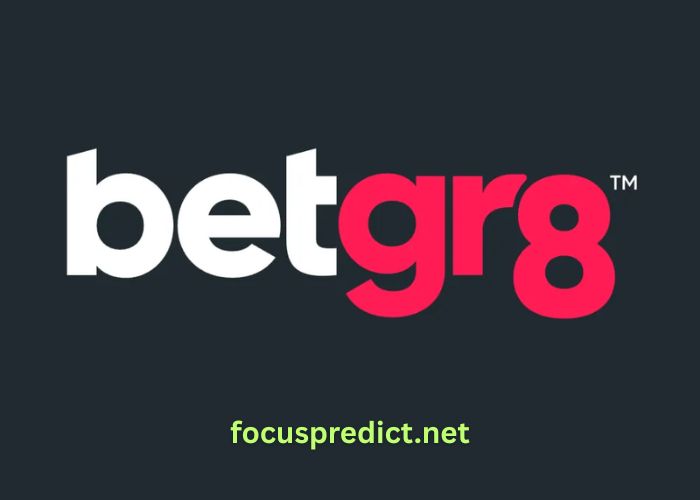One Million Predictions is an intriguing concept that has gained popularity, particularly in the realm of betting, forecasting, and gaming. At its core, it represents the vast number of possible outcomes and chances in various events or games. These predictions aim to provide insights into the potential results, helping individuals make better choices and increase their chances of success. Whether you’re participating in sports betting, fantasy leagues, or any other predictive activity, understanding the dynamics of one million predictions can significantly enhance your strategy and improve your overall experience.
Predictions have always played a key role in human decision-making, from guessing the weather to speculating on sports results. In the modern world, with the rise of digital platforms and data-driven insights, predictions have become more accessible, widespread, and impactful. This blog will dive into the concept of One Million Predictions, exploring what it means, how it works, and how to use it to your advantage. We’ll also look at how predictive models are developed, the importance of data, and why prediction games are becoming so popular.
Key Points:
- Predictions help in improving decision-making by offering statistical analysis.
- Understanding prediction models can help boost betting strategies.
- One Million Predictions aims to unlock opportunities in various betting platforms.
What Are One Million Predictions?
One Million Predictions is a term often used in the context of predictive models, particularly in scenarios like betting, gaming, or forecasting. It refers to the large number of potential outcomes in a given event, typically represented through data analysis. The more predictions you have, the better your chances of selecting the right one. This concept is widely used in sports betting, stock market predictions, or even lottery-based games.
The idea behind One Million Predictions is to provide a statistical model that considers a multitude of factors to come up with possible outcomes. In sports, for example, a prediction model might analyze historical data on teams, players, weather conditions, and other factors to forecast the result of a match. Similarly, in financial markets, these predictions can help traders make decisions based on past performance and various economic indicators.
Example: If you’re betting on football, a model might predict one million possible outcomes based on player statistics, team strategies, and historical trends. Using this data, you could increase your chances of predicting the correct outcome.
How Do One Million Predictions Work?
The mechanics behind One Million Predictions lie in complex algorithms and data science techniques. To create such predictions, data scientists use a combination of historical data, real-time information, and statistical methods to model outcomes. These predictions rely on algorithms that analyze large sets of data points and generate possible results. Machine learning and artificial intelligence (AI) models are commonly used to predict events like sports scores, election outcomes, or even the success of business ventures.
One Million Predictions works by simulating the event multiple times using different variables and then calculating the likelihood of each possible outcome. For example, if a football team plays 10 games, a prediction model might run simulations of those 10 games a million times to find out the most likely scoreline or outcome. This gives bettors or forecasters a statistical edge in predicting the result. These models are constantly refined, based on newer data, ensuring that the predictions remain relevant and reliable.
Reminder: Not all predictions will be correct, but data-driven predictions significantly improve your odds of success.
Example of Using One Million Predictions:
Imagine you’re analyzing a horse race with 10 participants. The prediction model might use past performance data, weather conditions, and jockey statistics to simulate the race a million times and give you the best possible prediction. This method helps bettors decide where to place their money for the highest probability of success.
Why Are One Million Predictions So Popular?
The popularity of One Million Predictions can be attributed to several factors. In today’s fast-paced, data-driven world, people are constantly looking for ways to gain an edge in various activities, especially in betting, gaming, and finance. The idea that predictions can help you make better decisions has broad appeal.
For instance, in the world of sports betting, the sheer number of possible outcomes can be overwhelming. With so many variables involved—team performance, injuries, home vs away games—it can be difficult to make an informed decision. One Million Predictions leverages historical data to generate statistical models that help bettors assess their chances of winning. With this information, bettors are more likely to make smarter bets and increase their chances of success.
Another reason for the rise in popularity is the accessibility of data. With the advancement of technology, data collection has become more efficient and accurate. This has enabled more people to access predictive models that were once only available to professionals or experts. Now, with platforms offering prediction services and tools, anyone can get access to predictions based on millions of simulations.
Table: Key Factors Impacting One Million Predictions
| Factor | Impact on Prediction | Examples |
| Historical Data | Affects outcome accuracy | Team performance in past seasons |
| Player Performance | Determines match outcomes | Goals scored, assists, injuries |
| Weather Conditions | Affects race results | Rain impacting a horse’s speed or a player’s endurance |
| Jockey or Coach Strategy | Influences outcome | Tactical changes made during games or races |
How Can You Benefit from One Million Predictions?
Using One Million Predictions to your advantage can be incredibly beneficial, especially for those involved in betting or other predictive endeavors. One of the main benefits is the improvement in decision-making. Rather than relying on guesswork or intuition, predictions offer a statistical basis for making decisions.
For example, in sports betting, instead of randomly selecting a team to bet on, you can rely on One Million Predictions to find out the most likely outcome. These predictions can help you spot trends, identify strong performers, and assess risks. Over time, consistently using predictions as a decision-making tool can lead to better results and more profitable betting.
The use of predictions can also help you avoid losses. In betting, it’s easy to get caught up in emotions or to take risks based on hunches. However, One Million Predictions provide a more rational approach by using cold, hard data to guide your decisions. This helps to minimize losses and increases your chances of making more calculated bets.
Reminder: Always remember, predictions are not guaranteed, but they improve your chances of success.
Are One Million Predictions Accurate?
While One Million Predictions can improve your chances of success, accuracy is not always guaranteed. Predictive models are based on historical data and trends, and while they can highlight likely outcomes, unforeseen variables can still impact the results. For example, an injury to a key player or a change in weather conditions can drastically alter the course of a game or race, making predictions less reliable.
That said, prediction models that use vast amounts of data, like One Million Predictions, tend to have a higher success rate than traditional methods. With millions of simulations, the outcomes are averaged to provide the most statistically likely result. As the model learns and adapts to new data, its accuracy continues to improve.
However, it’s important to remember that One Million Predictions is a tool for enhancing decision-making, not a foolproof way to guarantee success.
Table: Comparison of Prediction Accuracy
| Prediction Method | Accuracy Level | Benefits |
| Historical Analysis | Medium to High | Useful for identifying trends |
| Machine Learning Models | High | Accounts for numerous variables |
| Intuitive Guesswork | Low | Can lead to inaccurate predictions |
Conclusion
One Million Predictions is a fascinating concept that uses data, analysis, and simulations to help individuals make informed decisions in various fields, including sports betting, financial forecasting, and gaming. By leveraging the power of statistical models and historical data, you can increase your chances of making successful predictions, ultimately improving your decision-making processes. While predictions aren’t always perfect, they provide a better framework for understanding potential outcomes than guessing alone.
For those looking to improve their odds in betting, gaming, or even investments, understanding how One Million Predictions work and how to use them can lead to more informed and profitable choices. So, the next time you’re making a prediction, remember to consider the power of data-driven insights.
FAQ’s
1. What are One Million Predictions?
One Million Predictions refers to the use of data and statistical models to predict outcomes across a variety of events by simulating a million different scenarios.
2. How accurate are One Million Predictions?
While they are not always 100% accurate, One Million Predictions have a higher success rate than intuitive guessing because they are based on vast amounts of data and simulations.
3. How can I use One Million Predictions for betting?
By analyzing sports statistics and historical data, One Million Predictions help bettors make more informed decisions by identifying trends and improving the chances of selecting the right outcome.
4. Can One Million Predictions be applied to other industries?
Yes, One Million Predictions can be used in various fields, including finance, gaming, and market forecasting, where predictive models are used to determine likely outcomes.
5. Are One Million Predictions always correct?
No, One Million Predictions provide statistical insights based on data, but they cannot account for every possible factor and unexpected events, which may influence the outcome.




